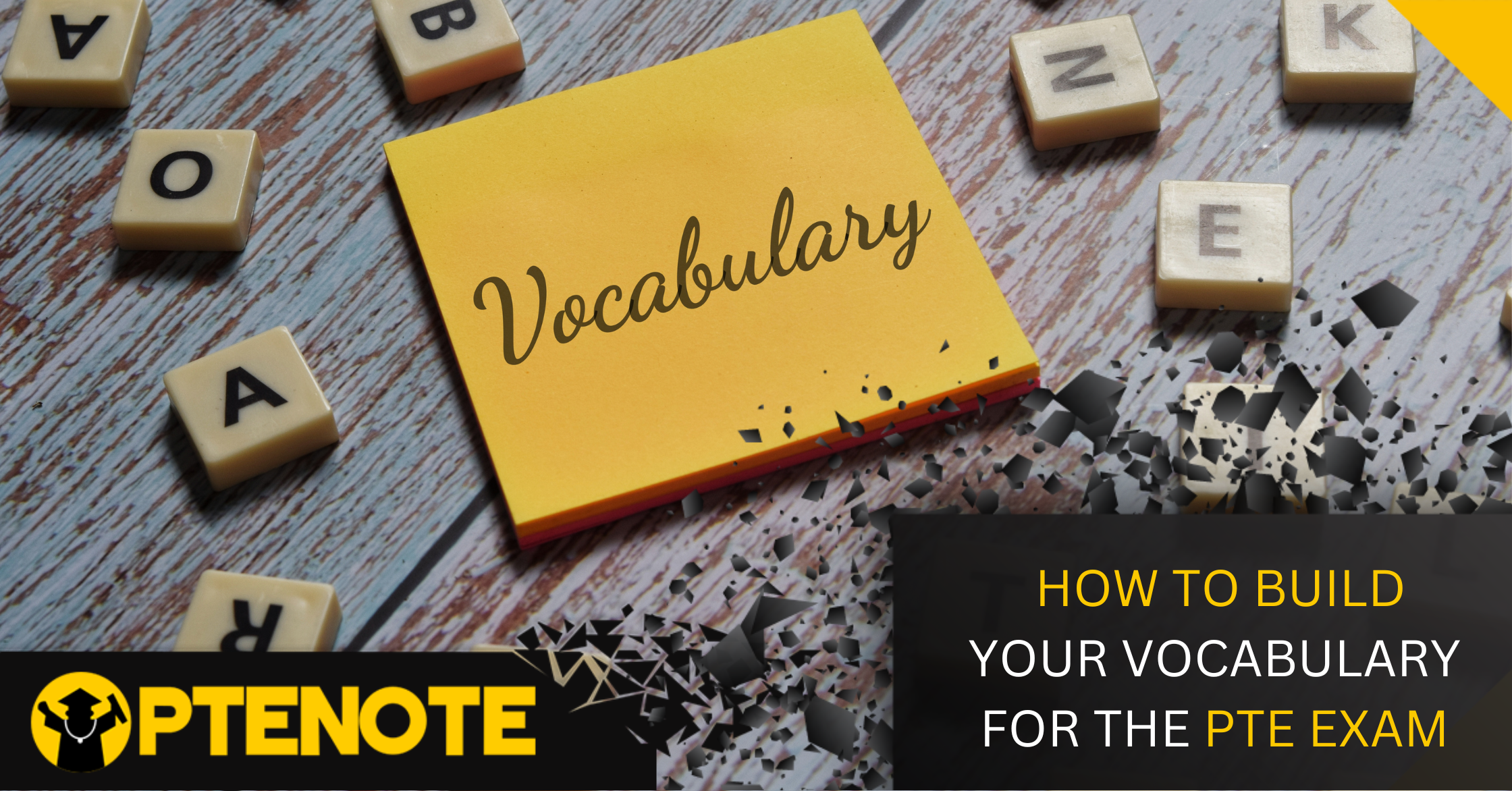How to Build Your Vocabulary for the PTE Exam

Building your vocabulary is an essential aspect of preparing for the PTE exam, a test that assesses the proficiency of non-native English speakers. A strong vocabulary is crucial for understanding complex texts and communicating effectively in both written and spoken English. However, developing a robust vocabulary requires time, dedication, and effective strategies. In this article, we will discuss some effective methods to help you build your vocabulary for the PTE exam in a decent way.
1. Reading is the Key
Reading is one of the most effective ways to expand your vocabulary. When you read extensively, you come across new words, phrases, and expressions that you can add to your vocabulary. Moreover, reading in context helps you understand the meaning of the words better. You can read various materials, such as books, newspapers, magazines, academic articles, and blogs. Whenever you encounter an unfamiliar word, look it up in a dictionary and write it down. Also, take note of its synonyms, antonyms, and example sentences. Keep a notebook or flashcards handy to jot down new words and review them regularly.
2. Engage with English Media
Another way to improve your vocabulary is by engaging with English media. You can watch English movies, TV shows, news programs, and listen to podcasts. Pay attention to new words and expressions that you hear and write them down. If possible, turn on subtitles to help you understand the meaning of unfamiliar words. Streaming platforms like Netflix and Amazon Prime offer various subtitle options, and you can adjust the speed of the audio to match your comprehension level. Furthermore, you can listen to English songs and read song lyrics to improve your vocabulary and language skills.
3. Use Vocabulary-Building Apps
In the digital age, several vocabulary-building apps can help you improve your vocabulary for the PTE exam. Apps like Duolingo, Memrise, and Quizlet offer a range of exercises, flashcards, and games that make learning new words interactive and engaging. You can set daily goals and practice for a few minutes each day to keep your learning consistent. These apps also track your progress, identify your strengths and weaknesses, and personalize your learning experience.
Don’t let exam nerves hold you back – try our free PTE mock tests and prepare with confidence.
4. Make Flashcards
Flashcards are an excellent way to learn and retain new vocabulary. You can create your own flashcards using index cards or use online tools like Quizlet to make digital flashcards. Write the word on one side and the definition, synonyms, and example sentences on the other side. Review your flashcards regularly, and test yourself to see if you remember the meaning of the words.
5. Use Vocabulary Lists
Several vocabulary lists are available online that are specifically designed for the PTE exam. These lists include common academic words, phrases, and expressions that are frequently used in the test. You can use these lists to focus on specific topics and themes that are relevant to the exam. You can also use the lists to create your own flashcards and practice exercises. Moreover, you can use vocabulary lists to practice with PTE sample questions that test your vocabulary skills, such as multiple-choice questions, fill in the blanks, and summarizing.

6. Use Words in Context
Learning new words in isolation is not enough to build your vocabulary effectively. You need to use the words in context to understand how they are used in sentences and how they relate to other words. You can use the new words in your writing and speaking exercises, and try to incorporate them into your everyday conversation. This will help you to remember the words and use them more fluently. Moreover, using words in context helps you understand the nuance and connotation of words, which is crucial for scoring high on the PTE exam.
7. Practice Consistently
Finally, building your vocabulary for the PTE exam requires consistent practice. Set aside a specific time each day to practice and review the new words that you have learned. Keep a record of your progress, and track your improvement over time. You can also join study groups or language exchange programs to practice with other learners and get feedback on your language skills. Furthermore, take advantage of PTE preparation materials, such as practice tests, sample questions, and study guides. These resources will help you familiarize yourself with the format and structure of the PTE exam and build your confidence.
In conclusion, building your vocabulary for the PTE exam requires time, dedication, and effective strategies. Reading extensively, engaging with English media, using vocabulary-building apps, making flashcards, using vocabulary lists, using words in context, and practicing with sample questions are some effective methods to expand your vocabulary. Remember to be consistent with your practice and review regularly to ensure that you retain the new words and phrases that you have learned. Good luck with your preparation for the PTE exam!

1800 123 7977

+61 488 844 647






